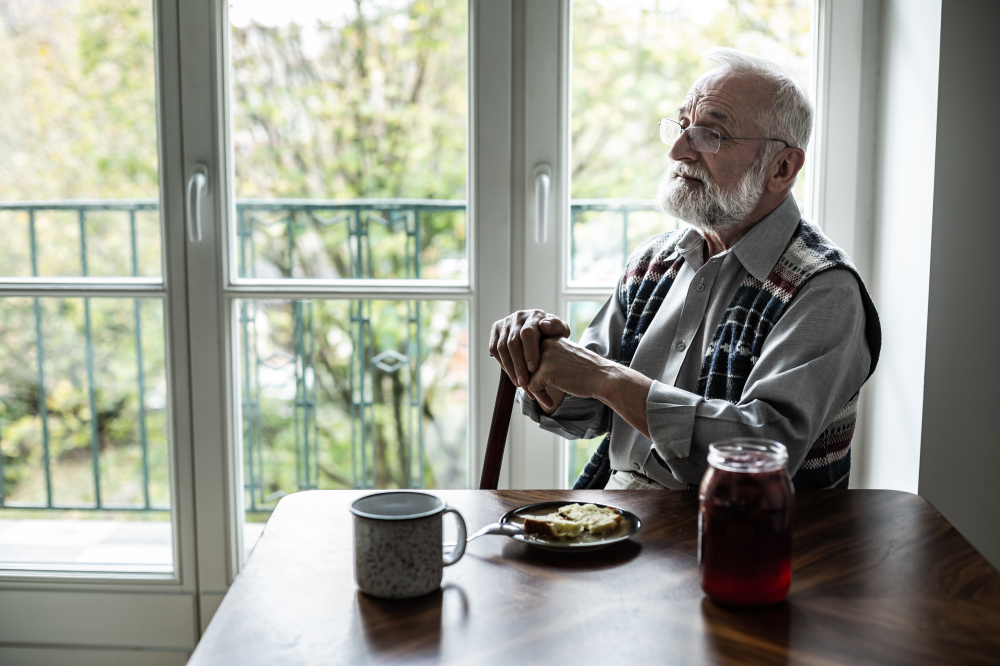Social distancing and the impact of lockdown has meant an increase in the number of people longing for some sort of connection with others.

7 ways to help people who may be suffering with loneliness
Research by The Co-op and the British Red Cross from before the coronavirus crisis, found more than nine million people in the UK were either always or often lonely. But that figure is expected to have risen significantly over the last few months.
Loneliness Awareness Week (June 15-19) aims to draw attention to the problem, which is not only bad for mental health, but can affect a person's physical health too. Studies have shown loneliness, living alone and poor social connections are as bad for your health as smoking 15 cigarettes a day, and worse for you than obesity. Indeed, loneliness can increase your risk of death by 29%.
To help tackle the issue, the #Let'sTalkLoneliness campaign is aiming to get people talking openly about loneliness, while Kate Shurety, executive director of the Campaign to End Loneliness, says: "With lockdown exacerbating feelings of loneliness for many, it's more important than ever to check in on those around you. Staying in touch with friends, family and neighbours can help to ease any feelings of loneliness you and others may experience during this period."
Here are seven easy ways to help people dealing with loneliness as we gradually emerge from lockdown…
1. Make an effort to chat
Sometimes a friendly chat is all people need to feel better, and as meeting in person is still difficult, your best option may be to simply get on the blower.
Shurety says: "Sometimes, the best way to check in is to just call – 80% of respondents to our recent survey told us laughing or sharing memories helps most improve their mood. Small moments matter, and can make a huge difference to someone who's feeling lonely. So pick up the phone, find your best joke, and just call." Let's Talk Loneliness suggests making the call a regular event, and planning subsequent calls.
2. Make digital contact
Think about people you've lost contact with – this might be an ideal time to get back in touch. An e-mail or a text can start a conversation, and the Campaign to End Loneliness suggests creating WhatsApp groups with neighbours, family or friends, and using Facebook and Twitter to keep in touch.
If a lonely friend or family member isn't on these digital platforms, help them sign up. "While technology can't replace the feeling of communicating in person, there are ways of staying connected in isolation that can help," stresses Shurety.
3. Don't just assume people are okay
Think about people you know who might be lonely. This could be those who are self-isolating for long periods or who have other challenges, or younger people who may live alone and be cut off from their family, working from home or not working at all. Make a special effort to connect with them.
4. Send a card or letter
The minister for loneliness Baroness Barran has urged people to make contact with friends, family, elderly neighbours or any other vulnerable people by writing to them.
"The last few months have brought loneliness to the forefront of our minds," she said."Writing letters might be a slightly forgotten art, but it's more important than ever to connect with people, and putting pen to paper is an excellent way of making sure our friends, family and neighbours know we're thinking about them."
5. Suggest online clubs and groups
Let's Talk Loneliness says being part of a shared interest group is a great way for people that are feeling lonely, to make connections. Suggest searching for such groups, or have a look yourself and share links.
6. Give them a wave and a smile
If you pass neighbours on the street, smile, wave and have a socially distanced chat. Offer to swap phone numbers or even set up a street WhatsApp group, suggests Let's Talk Loneliness. In some areas the NextDoor app can be used to connect with neighbours.
7. Volunteer your time
If you have some time on your hands, why not volunteer to help people who are more isolated? You can offer to help with shopping or picking up prescriptions, and stop for a doorstep chat while you do so. Or even support a loneliness charity directly.

